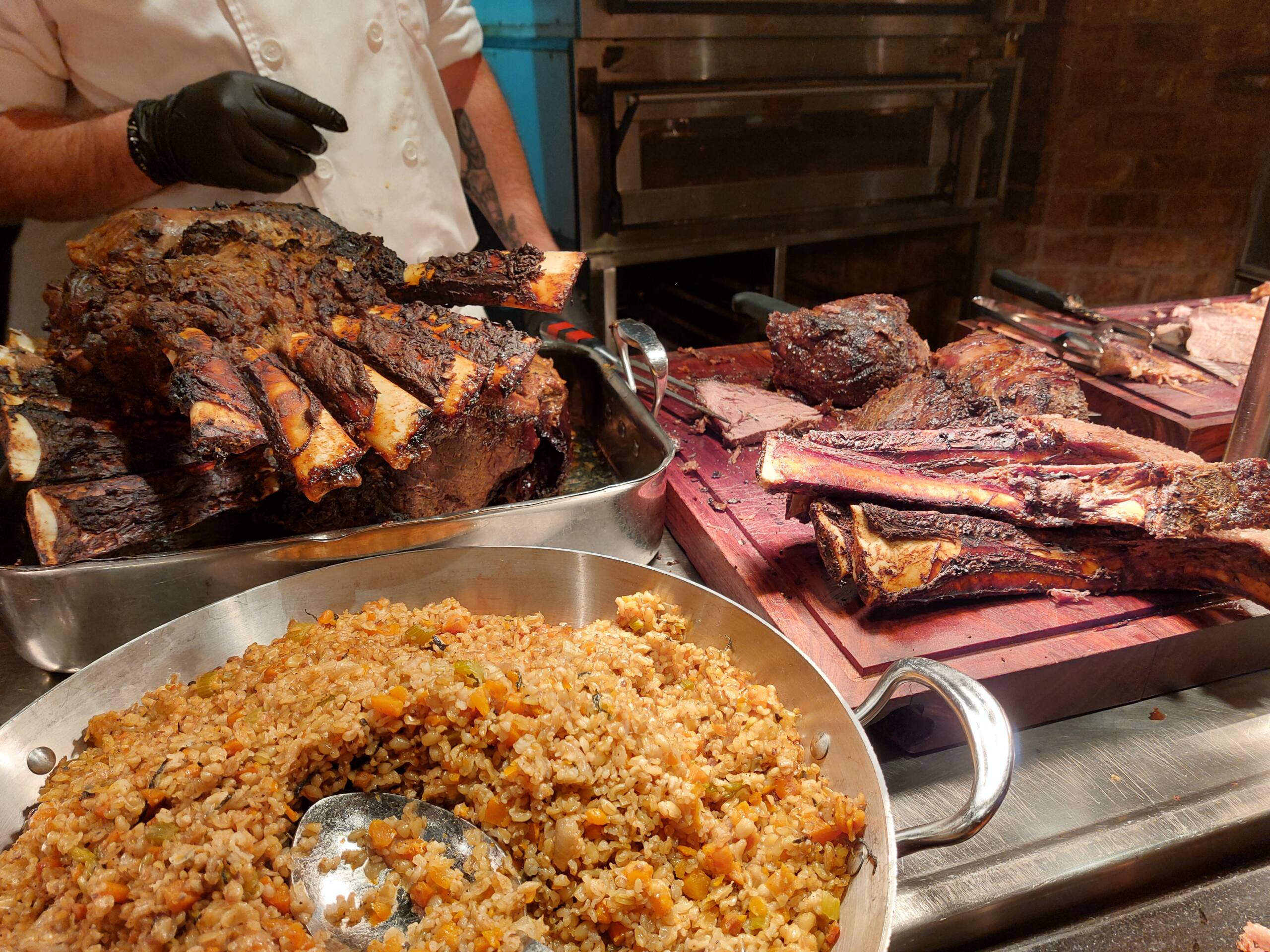There’s a strange moment — and the scene in that photo captures it perfectly — when you’re standing in front of a mountain of ribs and oversized roast cuts, and you suddenly realize this isn’t dinner… it’s strategy. The food isn’t there to nourish you. It’s there to tempt you, to make you forget that hunger stopped being relevant about thirty minutes ago. You paid for it, so you eat more. You justify the excess as “value,” but deep down you know it’s just momentum.

Half-pension buffets have this way of pulling you into a routine you never asked for. Breakfast becomes mandatory, not enjoyable. The hotel expects you to wake up and face trays of scrambled eggs, sausages, cold cuts, pastries, fruit, cereal — an entire culinary panorama before your brain has even fully loaded the day. But honestly? Who needs that? Most days, the perfect breakfast is far simpler: one good coffee, maybe a fresh croissant from a small café nearby where people actually live their lives. Sitting among locals is a thousand times more real than balancing a plate crafted for anonymous mass consumption.
And then there’s dinner — the second commitment of the day. The roast carving station, like some ceremonial altar. The endless reheated sides. The over-seasoned meats and sauces that exist not because they’re traditional or local, but because they please the maximum number of people with the minimum amount of identity. You don’t need a two-pound steak. You don’t need three plates just because they exist. You don’t need to eat like you’re storing calories for winter survival.
Travel loses something when meals become part of a schedule. You end up returning to the hotel not because you’re excited to eat — but because you already paid for it, and skipping feels wasteful. That’s the irony: the half-pension model sells convenience, yet what it really takes away is freedom. You end up missing the joy of wandering, of discovering a tucked-away restaurant, of ordering a dish someone learned to make from their grandmother instead of from a corporate operations manual.
When you’re not tied to a buffet timetable, evenings become unpredictable in the best possible way. You walk, explore, smell the air, peek into places, choose based on curiosity instead of obligation. Meals become memories, not logistics.
So yeah — the buffet is abundant, generous, maybe even comforting. But the longer you travel, the more you realize that real food isn’t about volume. It’s about connection. One thoughtful meal beats ten oversized plates. One croissant next to a morning espresso among strangers feels more human than any hotel dining hall ever will.
Travel shouldn’t feel like an eating contract. It should feel like life unfolding — slowly, intentionally, and deliciously.
Leave a Reply